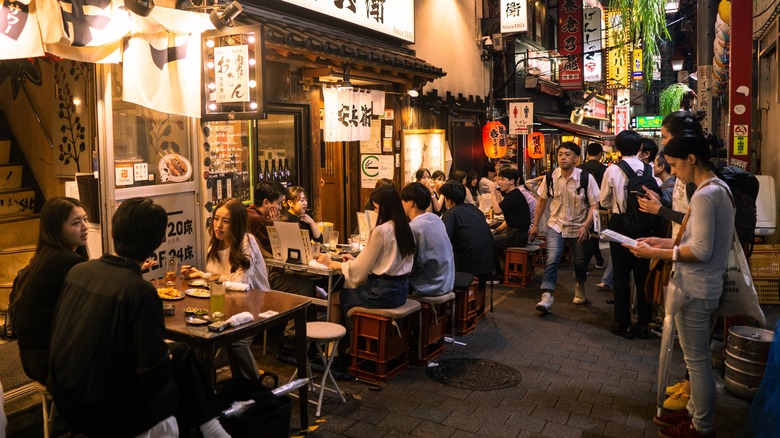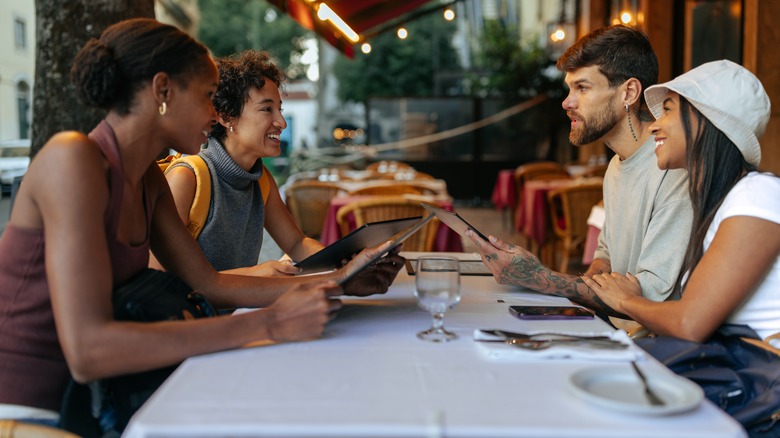Restaurants In Popular Destinations Can Charge Tourists More Than Locals (And The Clever Way To Avoid It)
Traveling is already expensive, but no matter how much you tighten your budget and make sacrifices (goodbye, legroom and non-questionable accommodations), you somehow still end up overspending. Maybe it's those never-ending airline baggage fees, an Airbnb bill with surprise additional charges, or sneaky resort fees that make "all-inclusive" feel like a joke — there's always something unexpected eating into your budget. And as if that's not bad enough, some restaurants have their own little scam: charging tourists more than the locals for food. The fix? Apparently, all it takes is asking for the menu in the local language instead of English.
Now, sure, tourists should expect to pay more for some things. Cities like Barcelona, Venice, and Amsterdam slap visitors with tourist taxes to curb overtourism, so you can already expect to shell out extra for your hotel stay and attraction visits. But in some places, even dining out comes with a foreigner markup. This is reportedly common in Japan, where some restaurant owners justify higher prices for tourists due to added service challenges. "People say it's discrimination, but it is really hard for us to serve foreigners, and it is beyond our capacity," one owner told CNN. "We need (this pricing system) for cost reasons." And then there's Lisbon, where things get even sneakier. Some restaurants have a standard price list, but locals know a secret password or code to unlock the real prices. If you don't have the magic words, congratulations — you're paying full price while the guy next to you gets a discount.
The ethics are questionable at best, and its unclear if these practices will ever change. For now, your best shot at avoiding the tourist markup when dining is to skip the English menu and hope for the best.
Asking for a native language menu is your best bet to save money
Now, not every restaurant is out to squeeze every last cent from unsuspecting tourists, but it happens enough to warrant some caution. If you're handed a full English menu but spot a local-language version floating around, ask for that instead. Not only might it have better options, but there's a good chance it'll also have cheaper prices. Just be ready to put your translation app to work.
Redditors have been onto this trick for a while. One person on Reddit recalled dining in Kyoto, only to find that everything on the English menu cost 200 yen more. Another in the same thread swore by the Japanese menu for its superior deals, saying, "Japanese menu has sets and lunch deals that are a MUCH better deal than the English one that lacks all of that. Always had to ask for the Japanese menu because of this." And it's not just Japan — another Redditor recalled their time in Croatia: "I went to Croatia and met up with some mates (who are Croats) and they always ordered for me off the local menu, it was like half the price!"
So, make it a point to always ask for the local menu if you see one. And honestly, if a restaurant has an English menu, that's probably a red flag anyway. Even the great Anthony Bourdain warned against those places. "You want to go to a place where there's locals only," he once told Time. "No photos of the food, the menu is not in English and there are people eating there that look like they go there a lot." In short, if there are signs indicating that a restaurant is a tourist trap, it probably is.

